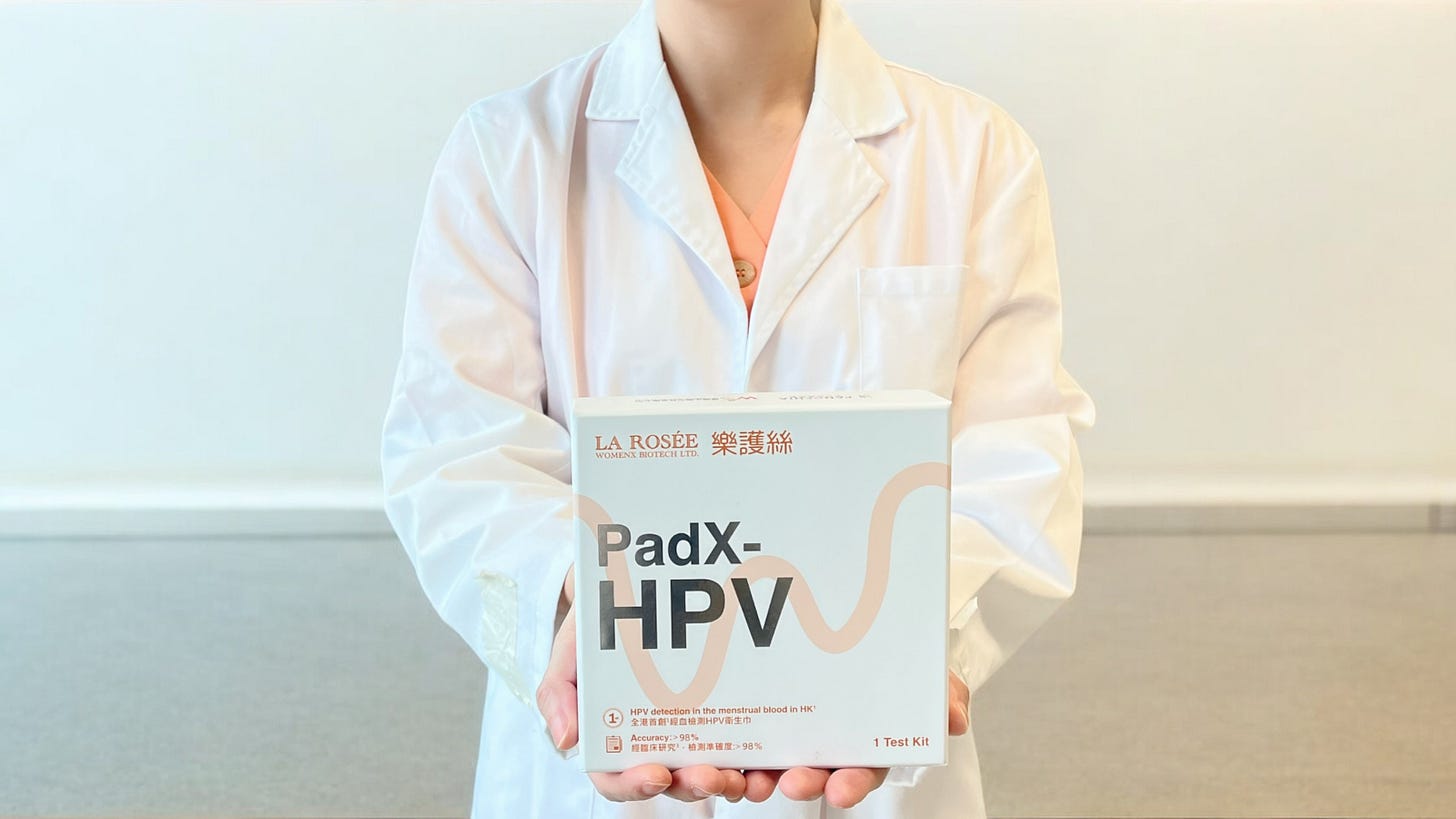Hong Kong start-up WomenX Biotech launches HPV detection period pads
Non-invasive and highly accurate, the innovation aims to further reduce cervical cancer rates through prevention
Hong Kong’s WomenX Biotech has launched a market-first period pad which can detect Human Papillomavirus (HPV) and offers a non-invasive and convenient at-home alternative to cervical screening.
‘PadX’ detects HPV using the menstrual blood from the period pad and has already demonstrated an accuracy of 99.2% (from tests on 119 female participants).
Founder Dr Pui Wah Choi has been working on the design and clinical testing of the period pad since 2020.
Dr Choi said:
“We set a new standard in HPV screening, empowering women with accessible, accurate, and discreet health monitoring options.
“I believe we have opened the door to detection-based sanitary product lines, paving the way for further discoveries about what menstrual blood can reveal regarding other female health risks.”
Eradicating cervical cancer
Human Papillomavirus (HPV) is a prevalent, often symptomless virus linked to cervical cancer, affecting 3M women globally annually, according to the World Health Organisation.
Early detection through regular screening is crucial as it allows HPV to be detected early and preventative measures to be taken. Currently, approximately 95% of cervical cancers believed to be attributed to persistent HPV infection. Because of this strong link, a number of countries, including the UK have set out to eliminate cervical cancer over the next few decades by increasing cervical screening as well as uptake of the HPV vaccination.
Although HPV detection tests such as ‘pap tests’ or ‘smear tests’ are free in some countries like China and the UK, there is still an estimated 65-70% of women do not take them, primarily because of their invasive screening nature to collect cells from the cervix and surrounding area and often feelings of embarrassment or fear.
In contrast, Biotech says that similar tests are on average $120 (US dollars) in other places, including Hong Kong. In contrast the PadX HPV kit will be priced at HK$588 - approximately $75 US dollars.
Designed for HPV detection
Women X Biotech has teamed up with private medical testing laboratory Pangenia for the initiative who will receive the pads via the mail and produce digital test results within 3 business days.
The period pad is Hong Kong’s first non-invasive method to detect 24 HPV types directly from menstrual blood and the pad builds upon academic research in both Korea and China.
Dr Choi has spent over 15 years researching female cancer-related diseases as part of her career. Previously she has launched Hong Kong-made period pad brand LA ROSÉE, and helped put in place vending machines for period products in female restrooms.
Dr Choi explained her motivations:
“We envision a future where women globally have access to cutting-edge health technologies. I saw suffering from all sorts of women’s illnesses and health issues since I was young. Therefore, I was not a happy kid; our inventions hope to help undermine late-stage female diseases, leading to happier, healthier women on this planet, eventually preparing them for everything in life – and this is what we call the Future Women.”
Growing interest in convenient screening
There is a global effort to eliminate cervical cancer. The World Health Organisation (WHO) has set global targets for vaccinations, screenings and treatment for each country to meet by 2030.
And innovators globally are developing comfortable and convenient options for self-screening too - particularly aimed at people who find traditional cervical screening uncomfortable, embarrassing or inconvenient.
In the US, the Qvin ‘Q-Pad’ (which is a menstrual pad like PadX) is currently seeking regulatory approval to be used for HPV. And Teal Health’s Teal Wand is in clinical trials and has FDA breakthrough designation.
In the UK, gynaecological health company Daye offers an at-home HPV test using a tampon. And also in the UK, Phd student Sânziana Foia’s Papcup is another innovation in development which has had warm support from organisations including Cancer Research UK.
This week, a prominent UK organisation, Healthwatch England, also called upon the NHS in England to make self-screening an option for those who choose it.




